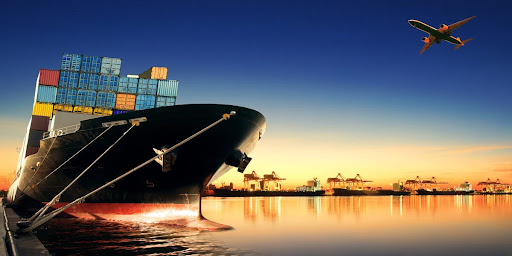Business
Innovations for Enhanced Safety in Express Shipping

Express shipping has become an integral part of modern commerce, offering rapid delivery of goods across the globe. However, with the increasing demand for faster deliveries, ensuring the safety of shipments has become a paramount concern. In recent years, advancements in technology and innovative strategies have significantly improved safety standards in express shipping, mitigating risks and enhancing overall efficiency. Click here to know more.
Enhanced Tracking and Monitoring Systems
One of the key advancements in express shipping safety is the implementation of enhanced tracking and monitoring systems. Modern technologies such as GPS tracking, RFID tagging, and IoT sensors enable real-time monitoring of shipments throughout the entire delivery process. These systems provide detailed insights into the location, temperature, humidity, and other environmental factors affecting the cargo, allowing for proactive measures to be taken to ensure its safety.
Risk Assessment and Management
Another crucial aspect of improving safety in express shipping is the adoption of advanced risk assessment and management techniques. Machine learning algorithms analyze vast amounts of data to identify potential risks and predict potential issues before they occur. By leveraging historical data, weather patterns, traffic conditions, and other relevant factors, shipping companies can optimize routes, adjust delivery schedules, and take preventive measures to minimize the likelihood of accidents or delays.
Secure Packaging Solutions
Ensuring the integrity of packages is essential for the safe transportation of goods. Innovative packaging solutions, such as tamper-evident seals, shock-absorbent materials, and temperature-controlled packaging, help protect shipments from damage, theft, or contamination during transit. Additionally, advancements in materials science have led to the development of lightweight yet durable packaging materials that offer superior protection without adding unnecessary weight or bulk to the shipment.
Stringent Compliance and Regulatory Standards
Adherence to strict compliance and regulatory standards is paramount in ensuring the safety and security of express shipments. Shipping companies must comply with a myriad of regulations governing the transportation of hazardous materials, perishable goods, pharmaceuticals, and other sensitive items. Failure to comply with these standards can result in severe penalties, reputation damage, and even legal consequences. Therefore, investing in robust compliance management systems and employee training programs is essential for maintaining high safety standards in express shipping operations. Learn more to grow.
Collaboration with Industry Stakeholders
Collaboration among industry stakeholders, including shipping companies, logistics providers, regulatory agencies, and technology partners, is essential for improving safety in express shipping. By sharing best practices, exchanging data, and leveraging collective expertise, stakeholders can identify emerging threats, address common challenges, and develop innovative solutions to enhance the safety and security of shipments. Furthermore, collaboration enables the establishment of industry-wide standards and protocols, ensuring consistency and uniformity across the express shipping ecosystem.
Continuous Innovation and Adaptation
In the fast-paced world of express shipping, continuous innovation and adaptation are key to staying ahead of evolving threats and challenges. Shipping companies must invest in research and development to explore new technologies, methodologies, and strategies for enhancing safety and efficiency in their operations. Whether it’s experimenting with drone delivery, implementing blockchain-based tracking systems, or deploying autonomous vehicles, embracing innovation enables shipping companies to streamline processes, reduce costs, and improve the overall customer experience.
Investment in Employee Training and Development
At the heart of every successful express shipping operation are skilled and knowledgeable employees who are equipped to handle the complexities of the job. Investing in employee training and development programs is crucial for ensuring that personnel are well-prepared to manage safety risks effectively. Training initiatives should cover a wide range of topics, including hazard identification, emergency response procedures, regulatory compliance, and customer service skills. By empowering employees with the tools and knowledge they need to excel in their roles, shipping companies can foster a culture of safety and excellence throughout the organization.
Embracing Sustainability in Express Shipping
In recent years, there has been a growing emphasis on sustainability in the logistics industry, driven by environmental concerns and the need to reduce carbon emissions. Express shipping companies are increasingly adopting eco-friendly practices and technologies to minimize their environmental footprint while maintaining high safety standards. Strategies such as route optimization, vehicle electrification, alternative fuels, and eco-friendly packaging materials are being implemented to reduce greenhouse gas emissions and promote sustainable shipping practices. By prioritizing sustainability alongside safety, express shipping companies can contribute to the global effort to combat climate change while meeting the growing demand for fast and reliable delivery services.
Harnessing the Power of Data Analytics
Data analytics plays a pivotal role in enhancing safety and efficiency in express shipping operations. By analyzing vast amounts of data generated from tracking systems, sensors, and other sources, shipping companies can gain valuable insights into their operations, identify areas for improvement, and make data-driven decisions to optimize performance. Predictive analytics algorithms can anticipate potential safety hazards, route disruptions, or delivery delays, allowing companies to take proactive measures to mitigate risks and ensure smooth operations. Additionally, data analytics enables continuous monitoring and performance tracking, empowering shipping companies to fine-tune their processes and adapt to changing market conditions in real-time.
Conclusion
In conclusion, enhancing safety in express shipping requires a multifaceted approach that combines technological innovation, regulatory compliance, collaboration, and employee empowerment. By leveraging advanced tracking systems, risk assessment techniques, secure packaging solutions, and industry-wide collaboration, shipping companies can mitigate risks, prevent accidents, and ensure the safe and timely delivery of goods to customers worldwide. Moreover, a commitment to continuous innovation and investment in employee training will enable shipping companies to adapt to changing market dynamics and maintain their competitive edge in the rapidly evolving express shipping industry.

